
Who we are
If you’re interested in the work we do and joining the lab or collaborating, please get in touch.
Bio
Since first studying animal behaviour I’ve been interested in the evolution of group living and also how groups form and are maintained. My research has covered multiple aspects of this behaviour, particularly the interaction between the behaviour of predators and social interactions in prey, and how inter-individual differences in groups interacts with group decision making. More recently, my research is including how predator and collective behaviour is affected by anthropogenic change in environmental variables, such as turbidity, temperature and anthropogenic noise. I use fish as a model system, both in the laboratory and in the field, because they are awesome!
Collective behaviour is a very inter-disciplinary area of research as it has importance to any organism that interacts socially, from microbes and plants all the way to humans. Although my training is very much in animal behaviour and behavioural ecology, I try to keep a broad perspective and collaborate with researchers in other fields. This includes physics and mathematics which provides a solid theoretical grounding for group processes and new analytic tools, and psychology which has a long history of studying social relationships in humans, many aspects of which apply to non-human animals as well.
Prof. Christos Ioannou (he/him)
History
As with most researchers I have been heavily shaped by the research groups I’ve been lucky enough to work in. Doing my PhD with Prof. Jens Krause at the University of Leeds (Jens is now back in Berlin, at the Leibniz Institute) was a great training in how to design and carry out behavioural experiments with fish, write papers, and think like a behavioural ecologist. It was where I fell in love with fish! Importantly, I had freedom to pursue my own research interests and develop my own style of experiment (as well as make loads of my own mistakes).
Moving on to Prof. Iain Couzin’s lab at Princeton University as a postdoc was quite a change, with most of the lab members there being mathematically and computationally focused. This was great for me as I had enjoyed working with such folks before, and it really helped me develop communication skills with those who hadn’t been trained as biologists (think physics, computer science, and applied mathematics backgrounds) but who were interested in similar research questions. Being one of few experimental biologists in the lab I had plenty of opportunities to develop new experimental approaches, such as a ‘virtual prey’ system for studying predation and training fish to spatial targets to test models of group decision making. Iain’s approach of using advanced methods such as computer tracking allows a much richer and detailed measurement of behaviour than is usually achieved and this is something that I utilise in my own research now. I also learnt a lot from Iain about thinking beyond animal behaviour to how our research can learn from, and contribute to, other fields.
Finally, I spent a year as a teaching fellow in animal behaviour in Exeter university’s School of Psychology, which again exposed me to new ways of approaching research, and gave me an appreciation of the experimental and statistical rigour that is standard in psychological experiments.
Since 2011 I have been at the University of Bristol, initially on a Leverhulme Early Career Fellowship, then as a NERC Independent Research Fellow. My NERC fellowship ended in September 2018 and I was promoted to Associate Professor in 2019 and Professor in 2022.
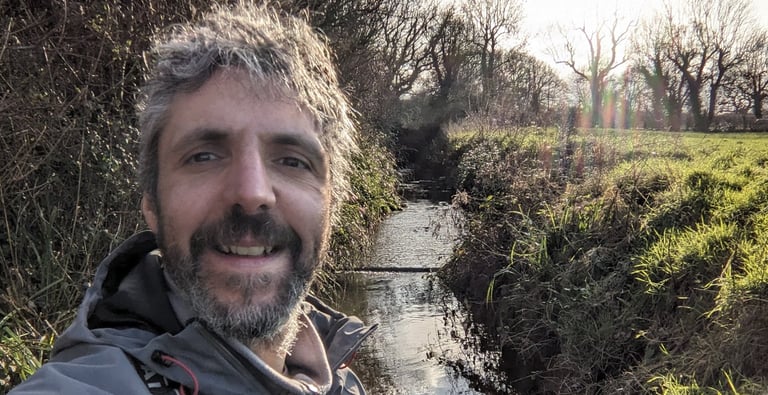

Current lab members
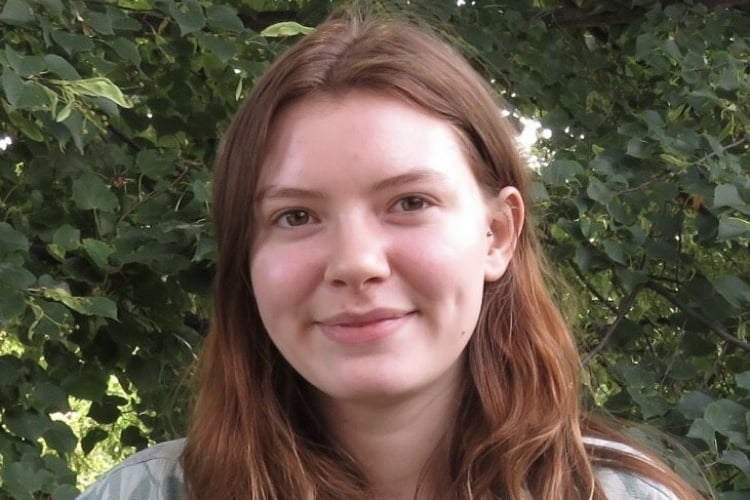

Molly Clark
After completing her first degree at the University of Oxford, Molly was a Master’s by Research student with us, examining how environmental conditions impact fish collective behaviour. Luckily, we managed to secure funding and she’s now a PhD student working on lateralisation in the context of collective behaviour.
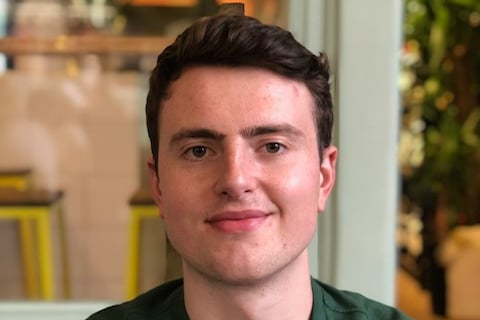

Rob Boddington
Rob joins us from the University of Sheffield where he did his master's, with his first degree at the University of Manchester. Like Molly Clark, he's funded by an EPSRC-Macquarie University Cotutelle studentship, but while he's working on fish with us at Bristol, he'll be working on ants in Sydney!


Bruno Carlos Ramos
Bruno did his first degree and masters in Brazil, and joins the group as a BBSRC SWBio PhD student. His project is developing computer vision and AI tools for assessing fish health and welfare.
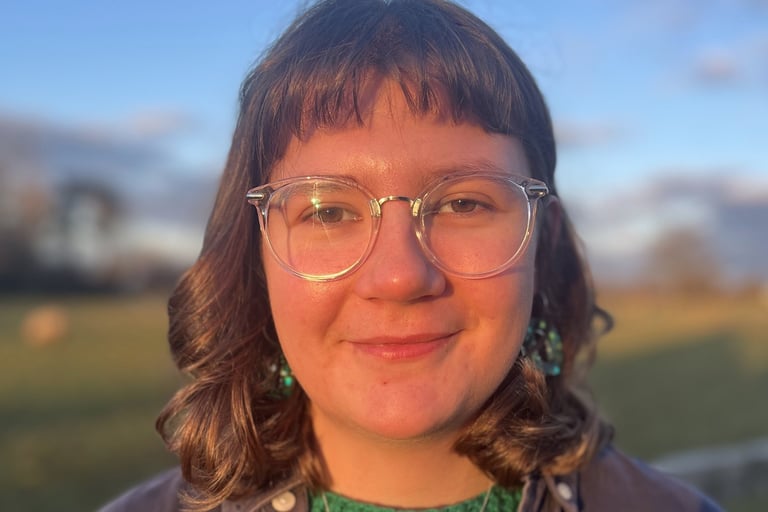

Ellie Turk
Ellie did her undergradudate degree at Durham and joins us as a master's by research student. Her project will be one of the first on the collective behaviour of benthic fish, and will include how environmental variables affect such behaviour.
Past lab members

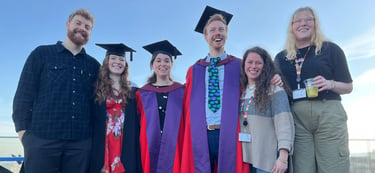
Dr Costanza Zanghi did her PhD in our group, funded by NERC’s FRESH CDT. After many years as a marine biologist at Plymouth University, her project was on how temperature and turbidity in freshwater systems affect predator-prey interactions. She then did a short postdoc with us before joining the Freshwater Habitats Trust.
Dr Robert Heathcote initially joined the group as a Leverhulme Trust postdoc looking at predator targeting behaviour, was then the postdoc on our first major BBSRC grant, and left our group to start a Royal Society University Research Fellowship at the University of Oxford.
Dr Hannah MacGregor first joined the group as a research assistant for a few months, then was a NERC funded postdoc with us for 3 years, working on group decision making. She then held a postdoc with Dr Herbert-Read.
Dr James Herbert-Read (aka Teddy) came as a postdoc for 2 years, funded by the Leverhulme Trust to work on predator behaviour when attacking groups of prey. After a year though he was snapped up by the University of Cambridge as their new lecturer in marine biology! He's now an associate professor.
Dr Isaac Planas Sitja won one of the very competitive Marie Skłodowska-Curie Postdoctoral Fellowships, funded by the EU. His project brought together skills he learnt during his PhD to explore how personality and state interact in predator-prey interactions. He left the lab to take an Assistant Professor at Tokyo Metropolitan University.
Dr Joanna Attwell did a PhD funded by the NERC GW4+ DTP and Macquarie University. On this 'cotutelle' scheme, she was cosupervised by Dr. Chris Reid, and my postdoc at the time, Dr Herbert-Read. Her project explored how environmental noise from caustics affects fish foraging and social behaviour. After her PhD, she worked as a data scientist for the Office of National Statistics.
Dr Iestyn Penry-Williams also did a PhD funded by the NERC GW4+ DTP and Macquarie University. He'll was cosupervised with Culum Brown at Macquarie. His project was on lateralisation in guppies and the impact of predation on this. We also published a paper together before this: "The oddity effect drives prey choice but not necessarily attack time". After his PhD, Iestyn worked as a data scientist for the Office of National Statistics.
Dr Toby Champneys worked on behavioural interactions between native and invasive cichlids for his PhD. Toby joined us from Swansea University, having worked with Carlos Garcia De Leaniz, and was funded by NERC's FRESH CDT scheme.
Dr Andrew Szopa-Comley was a NERC GW4+ PhD student, having orginally joined the group as a research assistant. He finished in 2021 with some great papers under his belt on predator-prey interactions in fish, especially focused on personality effects. After his PhD, Andy works as a UN Environment Programme World Conservation Monitoring Centre data scientist.
Dr Caroline Liddell completed her PhD with us in 2021, funded by the NERC GW4+ part time alongside a job at DEFRA. She worked on a really exciting project, how parasite infection interacts with distributions of sheep, a new direction for the lab. She was cosupervised by Prof. Eric Morgan and Prof. Richard Wall.
Ella Ackroyd-Weldon joined us from the University of St. Andrews. Her Master's by Research project investigated the interaction between fish colour patterning and water turbidity, and after graduating, moved to a PhD at the University of Plymouth.
Ella Waples was a Master's by Research student investigating how shoals of fish can avoid areas subjected to anthropogenic disturbance.
Jon Wing finished his Masters by Research with us in 2020, and his project was published in Behavioral Ecology and Sociobiology: "The impact of turbidity on foraging and risk taking in the invasive Nile tilapia (Oreochromis niloticus) and a threatened native cichlid (Oreochromis amphimelas)".
Izzy Jarrold finished her Master's by Research with us within a year - no mean feat! She loves Bristol so much she did her Biology BSc in our department too, and moved on to doing a degree at Bristol to become a vet, having gained a place on the very competitive graduate scheme.
Chris Poole completed a Master's by Research with us, from his undergraduate degree at Reading. Chris studied group dynamics in shoals of fish and exploring what affects, and is affected by, these behaviours. He's now moved on to a job as an ecological consultant.
